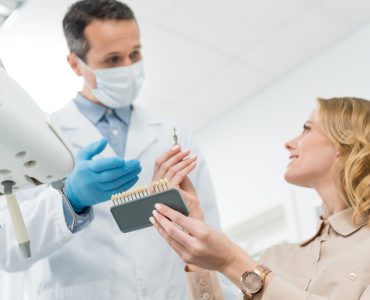The vaginal thrush is caused by the fungi Candida species. This condition is also known as vaginal candidosis or vulvovaginal candidiasis. This condition is a yeast infection generally caused by the fungi Candida albicans. This condition is most common in women who are in their thirties and forties and those that are pregnant. Most of them are affected by thrush at some point in their lives and for some it occurs regularly. Candida albicans is generally found in the vagina area and is considered harmless, but when this yeast multiplies it causes swelling and irritation in the vulva and vagina regions. Most of the forms can be treated and cured completely. Women who have poor immune system or badly controlled diabetes are more prone to this condition.
SYMPTOMS
- Itchy vulvae,
- Soreness and irritation in the vulva region,
- Vaginal discharge,
- Discomfort or pain experienced during sexual intercourse,
- Discomfort or pain experienced during urination
Vulvovaginal inflammation symptoms:
- Erythema (redness) in the vulva and the vaginal areas,
- Vaginal fissure (cracked skin), in cases of severe inflammation,
- Oedema (swelling up from a build up of fluid)
- Satellite lesions (soreness in the surrounding region)
Vaginal discharge is also a main cause for thrush to develop.
CAUSE
This condition is caused about by the otherwise friendly fungi called the Candida albicans; they are generally found in the mouth and in the vaginal regions. Most general causes are poorly controlled diabetes, antibiotics and pregnancy.
Possible risk factors are contraceptive, sexual behaviour, tight fitted clothes and personal hygiene.
DIAGNOSIS
A doctor’s opinion is a must; and the doctor might ask questions like ‘Were you affected by thrush previously,’, ‘what are the symptoms,’ the physician might also examine the infected area. It is also diagnosed based on symptoms like itchy vagina, discomfort or pain during sexual intercourse and vaginal discharge. In some cases a sample of the vaginal secretion is taken to get it tested in the laboratory. This test is conducted to check if the condition is caused by a bacterial vaginosis or trichomoniasis or infection caused by Trichomonas vaginalis. The main thing is to know that this condition can not be transmitted through sexual intercourse.
TREATMENT
If the condition is mild your GP will give you a short course in antifungal medicine, which will have to be taken for a day or two. If the condition is severe then the treatment will have to be taken for a longer duration. For girls in the age group of (12-16) who are affected by thrush are treated with Oral antifungal treatment, Fluconazole or itraconazole are the two oral antifungal treatments. Intravaginal pessaries usually recommended are clotrimazole, econazole, or miconazole. Pregnant women suffering from thrush are not treated with antifungal medicines because it can affect the baby.
Self Care
Wash the vaginal area thoroughly with water and avoid using shower gels, douches, perfumed soaps and vaginal deodorants.
Avoid usage of spermicidal creams, latex condoms and lubricants if they cause discomfort or pain.
Avoid wearing tight fitted and synthetic clothes and wear cotton and comfortable clothes where possible.











